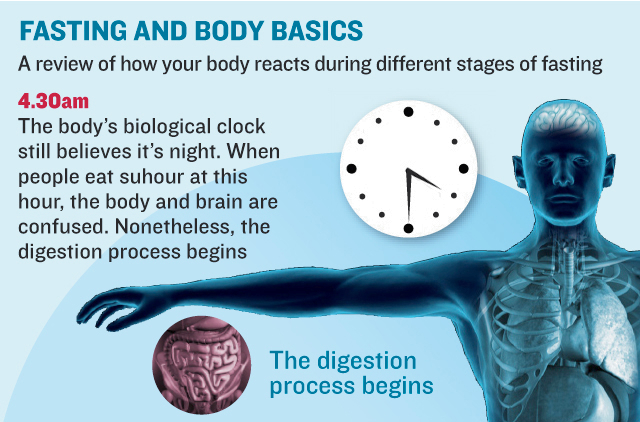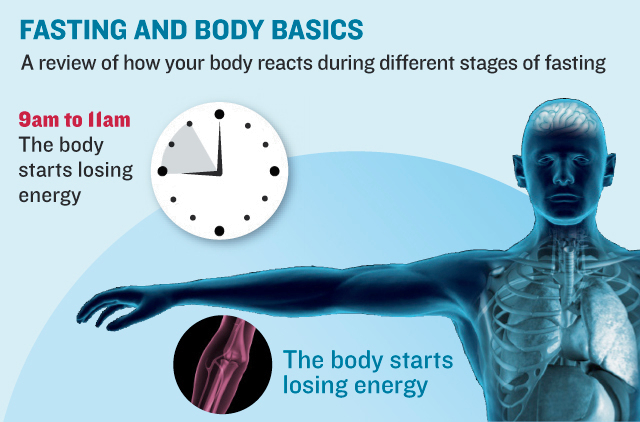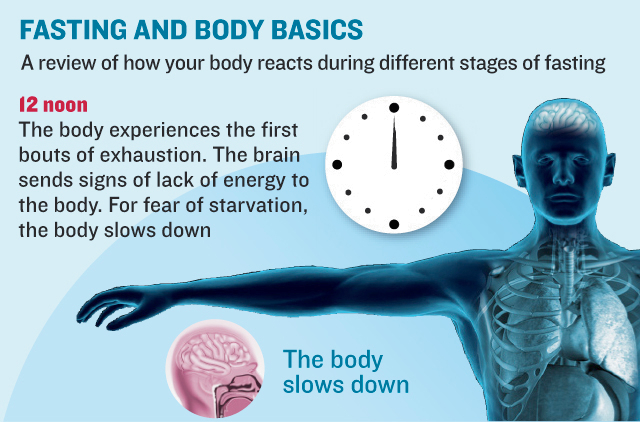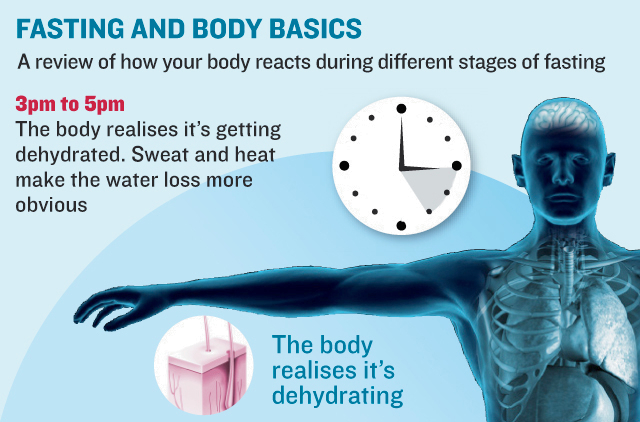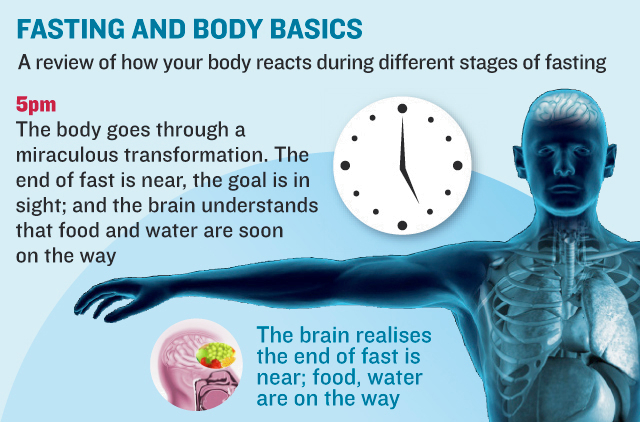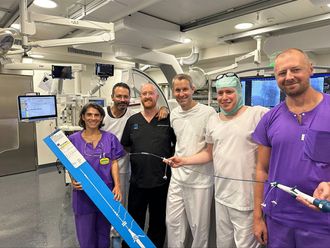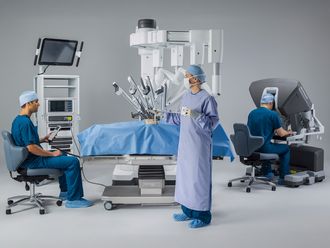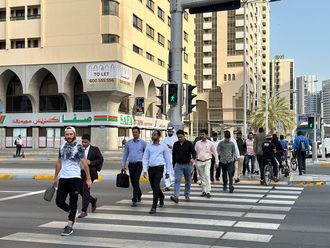
Dubai: With no food or water being consumed by the body for an average of 14 hours during the Ramadan fast, it is important to take precautions against dehydration and ulcers, a medical professional warns.
"When we fast, our body undergoes an intense detoxification," says Dr Chandy George, an ayurvedic doctor at Balance Wellness Club. "Fats metabolise faster, muscle tissue starts breaking down, the cells get dehydrated, activity slows down, toxins are released…" To counteract these effects and make the most of the detoxification, it is crucial to understand what goes on in our bodies while we fast.
A fasting person tends to sweat and urinate more, says Dr George. "This is the first sign that the body is detoxifying itself." However, losing liquids so rapidly may pose a threat to the body, if not handled adequately, he warns, stressing the importance of consuming 3.5 to 4 litres of water per adult, per day, in the hours from iftar to suhour.
Importance of Suhour
Suhour should always be the lightest meal, he advises. A glass of milk, juice and four to five dates is all the body needs, he says. "Although food such as corn and oatmeal are permissible, the body does not require them to sustain itself through the fast. Overeating at suhour means the person begins the fast feeling sluggish: the result of the body's digestive system working overtime to digest a midnight meal."
Dr George warns of the dangers of skipping suhour. "Assuming a person goes to bed at 10pm, skips suhour and then ends his fast near 7pm, he starves and dehydrates his body for 21 hours at a stretch. The human body is not equipped to fast for 21 hours. It is dangerous and subjecting the body to this behaviour may lead to various complications, including stomach ulcers," he says.
While ending the fast at iftar, the doctor recommends a light meal consisting of water, dates and non-citric fruits. Allowing the stomach an hour to digest the food, the person should then eat the main course of dinner.
Fasting and your body
At 4.30am, when people wake up for their suhour meal, the brain and body don't comprehend what's going on. "The body's biological clock still believes it's night. When people eat suhour at this hour, the body and brain are confused. Nonetheless, the digestion process begins," says Dr George.
"During that process, the person may feel lethargic. To avoid that lazy feeling, suhour should be the lightest meal of the day. If one was to consume heavy, oily or non-veg food at this hour, the person is likely to begin feeling exhausted, since the body uses it's energy to digest the meal."
Between 9am and 11am, the body starts losing energy, says Dr George.
By noon, the body starts experiencing the first bouts of exhaustion. The brain starts sending signs of lack of energy to the rest of the body. For fear of starvation, the body slows down.
"Our bodies are built to survive," says Dr George. "An hour after the first messages of starvation are being sent out, the body begins to regain energy by burning stored fat. Post 3pm, the change in our bodies is dramatic.
"Between 3pm and 5pm the body realises it's dehydrating. Sweat and heat make the water loss more obvious. As every cell and tissue in the body requires water to function, the body slows down its activities, because the brain believes there is no water left. It's a self-defence mechanism," says Dr George.
"Subsequently, brain activity slows down. When the body lacks food, it takes energy out of its reserve fats. However, when the body lacks water, it has no reserve to draw from, and therefore begins to protect itself by functioning at a slower speed. "All the reflexes, reactions and involuntary actions within the body decelerate. The body sends out signals to all organs to hold back. As a result, the person suddenly feels tired and moody." The doctor recommends that those involved in physical labour should not work beyond this point. Dehydration might lead to headaches, nausea, exhaustion and lack of focus and concentration.
Come 5pm, however, and the body goes through a miraculous transformation. The end is near, the goal is in sight and the brain understands that food and water are soon on the way. It instructs the body to put out a final burst of energy to sustain the person through the next couple of hours, confident in the knowledge that replenishment is coming in.


